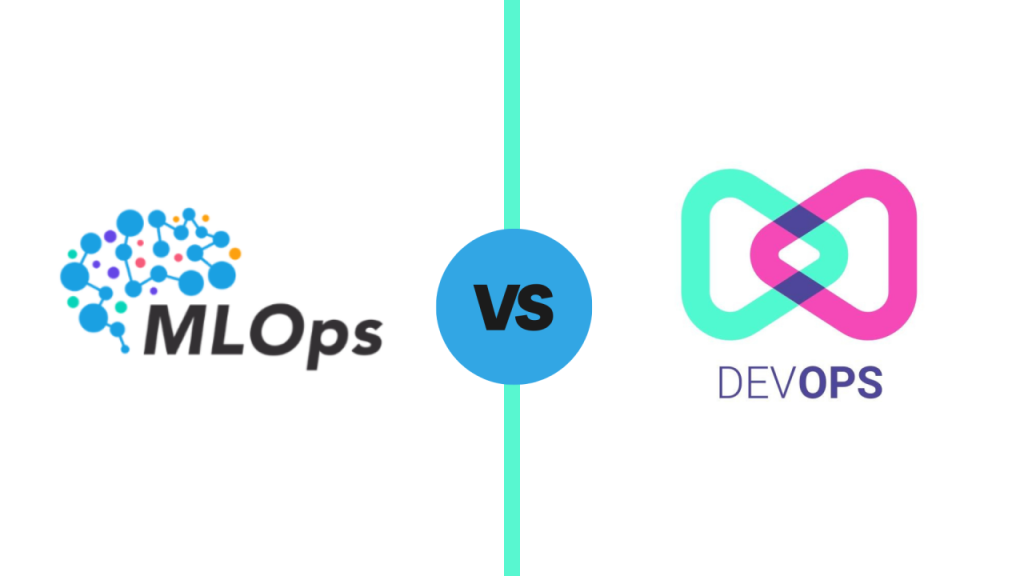
Are you tired of hearing about DevOps and MLOps and wondering what on earth they actually mean? Fear not, dear reader, for I have taken it upon myself to delve into the depths of these mysterious terms and decipher them for you. In this article, we will explore the differences between MLOps and DevOps, and why it matters.
The Basics: What is DevOps?
First, let’s start with DevOps. DevOps is the practice of collaboration between software development and IT operations teams. It is an approach that emphasizes automation, monitoring, and feedback loops in order to improve the speed and quality of software delivery.
In simpler terms, DevOps is all about making sure that the developers and the operations teams are working together to ensure that the software being developed is top-notch and can be deployed smoothly.
And What is MLOps?
Now, let’s move on to MLOps. MLOps stands for Machine Learning Operations, and as the name suggests, it is focused on the operationalization of machine learning models. It is an extension of DevOps that focuses specifically on machine learning and artificial intelligence systems.
In other words, MLOps is about making sure that the machine learning models being developed are not only accurate but are also able to be deployed and maintained in a production environment.
The Differences between DevOps and MLOps
At this point, you might be thinking that DevOps and MLOps sound pretty similar. And you would be right – there is a lot of overlap between the two. However, there are also some key differences that set them apart.
The Lifecycle of Code
One of the biggest differences between DevOps and MLOps is the lifecycle of the code being developed. In DevOps, the code goes through a continuous integration and continuous delivery (CI/CD) pipeline. This means that as soon as code is committed, it is built, tested, and deployed to production.
In MLOps, however, the lifecycle of the code is a bit more complicated. Machine learning models require a lot of data to be trained on, and that data needs to be cleaned and preprocessed before it can be used. This means that there is often a separate data preparation stage that happens before the model can even be built. Once the model is built, it needs to be tested, validated, and optimized before it can be deployed to production.
The Role of Data Scientists
Another key difference between DevOps and MLOps is the role of data scientists. In DevOps, developers are responsible for writing the code and ensuring that it is deployed properly. In MLOps, data scientists are also involved in the process.
Data scientists are responsible for developing the machine learning models themselves, as well as monitoring and optimizing them. They work closely with developers and operations teams to ensure that the models are working as intended and are able to be deployed and maintained in a production environment.
The Importance of Monitoring
Finally, monitoring is a critical component of both DevOps and MLOps, but it takes on a different form in each. In DevOps, monitoring is focused on ensuring that the software is performing as expected and that any issues are caught and resolved quickly.
In MLOps, monitoring is focused on ensuring that the machine learning models are performing as expected and that any issues are caught and resolved quickly. This includes monitoring the accuracy of the models, as well as any biases or errors that may be present.

Why it Matters
So, now that we’ve explored the differences between DevOps and MLOps, you might be wondering why it even matters. Well, the truth is that as more and more companies start to leverage machine learning and artificial intelligence, the need for MLOps becomes increasingly important.
Without MLOps, it can be difficult to ensure that machine learning models are accurate, reliable, and able to be deployed and maintained in a production environment. This can lead to wasted time, money, and resources, as well as potential reputational damage if the models are not performing as expected.
By understanding the differences between DevOps and MLOps, companies can ensure that they are approaching their machine learning initiatives in the most effective and efficient way possible.
Conclusion
In conclusion, DevOps and MLOps are two related but distinct approaches to software development. While there is a lot of overlap between the two, there are also some key differences that set them apart. By understanding these differences, companies can ensure that their machine learning initiatives are successful and that their models are accurate, reliable, and able to be deployed and maintained in a production environment.